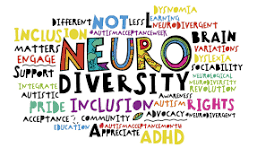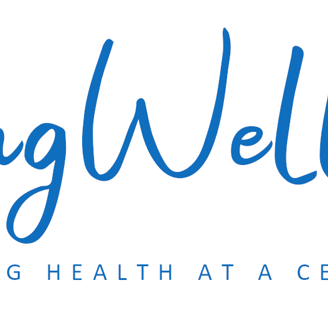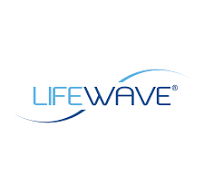Holistic Approaches to Autism & Neurodivergence: A BeingWELL.Me Perspective
This article discusses complementary approaches to supporting individuals with autism and neurodivergence. These approaches should be discussed with appropriate healthcare providers and implemented under proper supervision. The modalities described are not intended to replace conventional medical care but to work alongside it in a comprehensive approach to wellness. About the Author: Russ Maher is a Registered Nurse with an Honors degree in Nursing Science. He specializes in holistic approaches to supporting individuals with autism and neurodivergence through the BeingWELL.Me initiative.
5/8/20246 min read


Holistic Approaches to Autism & Neurodivergence: A BeingWELL.Me Perspective
By Russ Maher, RN BSc (Hons)
Introduction: A Journey into Holistic Neurodivergent Support
As a registered nurse with specialized experience in supporting individuals with autism and neurodivergence, I've observed patterns that have led me to explore complementary approaches to conventional care. Through my work with BeingWELL.Me, I've developed a framework that addresses underlying inflammatory processes, nutritional needs, and cellular health—all of which can significantly impact neurodivergent individuals' well-being.
This article outlines the key modalities that have shown promise in my clinical experience and through the BeingWELL.Me initiative. While each person's journey is unique, these approaches offer additional tools that many families have found valuable in supporting their loved ones with autism and related neurodivergent conditions.
Understanding the Inflammatory Foundation of Neurodivergence
One of the most consistent patterns I've documented through years of clinical observation is the presence of inflammatory processes underlying many neurodivergent presentations. Parents often report that their children with autism experience gastrointestinal issues, food sensitivities, and immune dysregulation—all hallmarks of inflammation.
The scientific literature increasingly supports this connection, with numerous studies finding elevated inflammatory markers in individuals with autism spectrum disorders. When we address these inflammatory processes systematically, we often see improvements not just in physical symptoms, but in behavioral, cognitive, and emotional regulation as well.
In my practice, I've found that reducing the overall inflammatory burden can free up neurological resources, potentially allowing for improved function across multiple domains. This perspective shifts our approach from merely managing symptoms to addressing underlying physiological processes that may be contributing to neurodivergent challenges.
Nutritional Foundations: The Anti-Inflammatory Approach
My approach begins with nutrition as the foundation of neurodivergent support. I've found that many individuals respond positively to anti-inflammatory dietary protocols that specifically reduce exposure to compounds that can trigger inflammatory cascades in sensitive people.
Low Lectin, Phytate, and Oxalate Diets
Through BeingWELL.Me, we work closely with families to implement low lectin, low phytate, and low oxalate diets where appropriate. These compounds, while not problematic for everyone, can trigger immune responses and inflammation in susceptible individuals.
Lectins, found in highest concentrations in legumes, grains, and nightshade vegetables, can compromise gut barrier integrity in some people, potentially increasing systemic inflammation. Phytates, present in grains, nuts, and seeds, can bind to minerals and potentially contribute to nutrient deficiencies. Oxalates, abundant in certain leafy greens, nuts, and other foods, can form crystals that some evidence suggests may trigger inflammatory responses in sensitive individuals.
Addressing Mold Exposure and Mycotoxins
A frequently overlooked inflammatory trigger is mold exposure. Mycotoxins produced by certain molds can be potent neuroinflammatory compounds. I've found that a low-mold diet, combined with environmental remediation when necessary, can be transformative for some neurodivergent individuals.
Parents often report that implementing these nutritional approaches leads to improvements in their children's focus, behavior, digestive function, and overall well-being. However, it's crucial to emphasize that these diets must be nutrient-dense while being low in potential triggers. Our goal is optimal nutrition, not simply restriction
Essential Fatty Acids: Balancing Inflammation through Oils
One of the most consistent interventions I've implemented with positive results involves optimizing the balance of omega-3 and omega-6 fatty acids. The modern diet typically provides an abundance of omega-6 fatty acids, which can promote inflammation when not balanced with adequate omega-3s.
Research has demonstrated that many individuals with autism and other neurodivergent conditions show imbalances in these essential fatty acids, which are fundamental building blocks for brain development and function. In my clinical experience, correcting this imbalance often yields noticeable improvements.
ZinZino Oils: Precision in Fatty Acid Balance
Through BeingWELL.Me, we often recommend ZinZino oils to families seeking to optimize fatty acid balance. These oils provide a carefully calibrated ratio of omega-3s to omega-6s, which helps counteract the pro-inflammatory state we often see in autism and other neurodivergent conditions.
The science behind this approach relates to the role these fats play in cell membrane function, neurotransmission, and inflammatory signaling. Brain cells are particularly rich in omega-3 fatty acids, especially DHA. When we restore proper levels, we're essentially giving the brain the raw materials it needs for optimal communication between neurons.
Parents frequently report improvements in focus, emotional regulation, and cognitive function when we optimize these essential fatty acids. While testing fatty acid profiles can be helpful when available, implementing a high-quality omega-3 supplement with the right EPA/DHA balance can be beneficial for most neurodivergent individuals as part of a comprehensive approach.
Photo-Biomodulation: Light-Based Therapies for Cellular Support
One of the most innovative areas in our BeingWELL.Me approach involves photo-biomodulation therapies. Light therapy, particularly specific wavelengths that support mitochondrial function and reduce oxidative stress, has shown remarkable potential for many neurodivergent individuals.
The Science of Light Therapy
Mitochondrial dysfunction is increasingly recognized as a component of many neurodivergent conditions. Photo-biomodulation appears to support mitochondrial function by increasing ATP production and reducing oxidative stress. This may be particularly important in high-energy-demand tissues like the brain.
The specific wavelengths used can influence cytochrome c oxidase, a key component of the electron transport chain in mitochondria. When functioning optimally, this supports cellular energy production and may help reduce the oxidative stress that contributes to neuroinflammation.
LifeWave Patches: An Innovative Approach
In my practice with BeingWELL.Me, I've had particularly interesting results with LifeWave patches, which use a unique approach to photo-biomodulation. These patches are designed to reflect specific wavelengths of light back into the body when activated by body heat, potentially stimulating cellular repair processes and supporting mitochondrial function.
Parents of neurodivergent children using these patches often report noticeable improvements in energy levels, sleep patterns, and emotional regulation. While the research in this specific area continues to evolve, the physiological principles of photo-biomodulation are well-established in scientific literature.
These approaches complement rather than replace other interventions. We see the best results when families implement comprehensive strategies that address multiple aspects of health simultaneously.


Empowering Families: Education and Personalization
Parent education is central to the BeingWELL.Me approach. I believe that informed parents become the best advocates for their children. I spend considerable time explaining the scientific rationale behind each recommendation and teaching parents to observe and document changes.
Our approach positions parents as active partners rather than passive recipients of advice. I view my role as providing tools, knowledge, and support, but ultimately, the parents become the primary health advocates for their children. This collaborative approach tends to yield the best long-term results, as parents can fine-tune approaches based on their intimate knowledge of their child's responses.
Integrating with Conventional Care
At BeingWELL.Me, we're careful to position these approaches as complementary to, rather than replacing, conventional medical care. We encourage families to keep their primary healthcare providers informed about all interventions, and we often communicate directly with physicians when possible.
These modalities address underlying factors that might otherwise be overlooked in conventional care, but they work best as part of a comprehensive approach. I believe in bridging the conventional and integrative worlds rather than creating false dichotomies.
Looking Forward: The Future of Neurodivergent Support
As we continue our work at BeingWELL.Me, I'm most hopeful about the movement toward truly personalized approaches. Each neurodivergent individual has a unique biochemistry, sensory profile, and set of environmental influences. The future lies in developing frameworks that can be customized for each person's journey.
I'm also encouraged by the growing recognition of the gut-brain connection and the role of inflammation in neurodevelopmental conditions. As research continues to validate these connections, I believe we'll see more integration of these approaches into standard care protocols.


Conclusion: A Holistic Vision
For families navigating neurodivergent conditions, I encourage both hope and pragmatism. These approaches require patience and careful observation, but the potential benefits can be significant. Working with knowledgeable practitioners who understand both the science behind these approaches and the unique needs of neurodivergent individuals is essential for success.
Most importantly, I remind families that neurodivergence brings both challenges and unique gifts. Our goal at BeingWELL.Me is always to reduce unnecessary suffering while honoring and supporting the whole person—not just addressing a collection of symptoms or challenges.
Through anti-inflammatory nutrition, optimized fatty acid balance, photo-biomodulation, and other complementary approaches, we're working to expand the toolkit available to neurodivergent individuals and their families. While each journey is unique, these modalities offer additional pathways toward well-being that many have found valuable in their quest for optimal health and function.
Note: This article discusses complementary approaches to supporting individuals with autism and neurodivergence. These approaches should be discussed with appropriate healthcare providers and implemented under proper supervision. The modalities described are not intended to replace conventional medical care but to work alongside it in a comprehensive approach to wellness.
About the Author: Russ Maher is a Registered Nurse with an Honors degree in Nursing Science. He specializes in holistic approaches to supporting individuals with autism and neurodivergence through the BeingWELL.Me initiative.
















